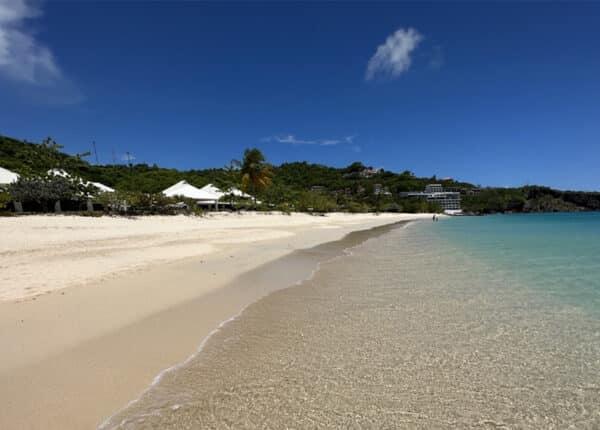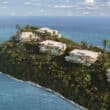Grenada Succeeds in Protecting Cash in US and Vacating Restraining Notices
By L Andrew S Riccio
CJ Legal Contributor
Grenada is an island nation better known for its beaches and diving than for petroleum production. But in 2004, RSM Production Corp., a US company, applied for a petroleum exploration license from Grenada.
Although an agreement was made between them in 1996 to allow for exploration, Grenada denied the application because it was submitted too late. RSM then requested arbitration based on the dispute resolution clause of the agreement, and the bilateral investment treaty between the US and Grenada.
As a result of the second arbitration under the rules of the International Centre for the Settlement of Investment Disputes (ICSID), RSM’s claims were dismissed by the Tribunal in December 2010, and Grenada was awarded its legal fees and costs totaling about $300,000. RSM never paid Grenada.
In March 2007, in a completely unrelated case, Grenada was found to have defaulted on four loans totaling $21,586,057.38 from the Export-Import Bank of the Republic of China [Taiwan] (“Ex-Im Bank”). Taiwan’s Ex-Im Bank then sued Grenada in the Southern District Court of New York in order to collect on the defaulted loans, and has been seeking funds to satisfy this judgment ever since.
Here is where these two unrelated cases coincide: in the Ex-Im Bank case, $300,000 was deposited with the court in November 2011. This is the money that Grenada acquired in order to satisfy its award from the RSM arbitration.
In July 2011, Grenada successfully garnished RSM shareholders’ bank accounts and collected the total amount awarded by the ICSID Tribunal.
On July 27, 2011, Ex-Im Bank learned of Grenada’s new funds, and immediately served restraining notices on Grenada’s US banks and US law firms in order to satisfy its own judgment. As a result of the restraining notices, Grenada and Ex-Im Bank came to an agreement to deposit the funds with the Court in order to determine if Ex-Im Bank’s judgment could be partially satisfied by these funds.
In The Export-Import Bank of the Republic of China v Grenada, No. 06-Civ.-2469, Opinion & Order, June 22, 2012, Judge Baer was presented with two motions by Grenada concerning the $300,000 on deposit. In the first, Grenada sought an order that the arbitration funds were immune from attachment under the Foreign Sovereign Immunities Act (“FSIA”), and a lien on the money in favor of Freshfields Bruckhaus Deringer, Grenada’s attorneys in the RSM arbitration.
The FSIA is a 1976 act of the US that establishes the circumstances within which a foreign sovereign may be sued in US courts and what effect such suit will have on sovereign-owned property.
Under the FSIA, the property of a foreign sovereign is immune from attachment or execution to satisfy a judgment, subject to certain exceptions. Relevant in this case is Section 1610(a)(1), where the foreign sovereign-owned property in question is used for a commercial activity in the US.
Although Grenada had expressly waived sovereign immunity in the loan agreement with Ex-Im Bank, the issue was whether the funds were “used for a commercial activity,” as per the FSIA exception. Ex-Im Bank argued that arbitration funds were used for a commercial activity because the underlying dispute (the RSM arbitration) concerned a commercial venture.
However, Judge Baer found this argument immaterial. “How the Arbitration Funds came into existence — i.e., whether the underlying arbitration was about a commercial venture is immaterial.” Opinion & Order, at *3. The FSIA exception explicitly states that the property “must be used for a commercial activity” and thus the origin of the property is irrelevant to its current use.
The opinion further finds that the future or potential use of the funds is also irrelevant. Because “[t]he funds at issue here have not been legally designated for payment to Freshfields,” it is irrelevant that Grenada planned to use those funds to pay its attorneys. Judge Baer found that the funds were immune from attachment by Ex-Im Bank. As such, there was no need to rule on the second issue, for a lien in favor of Freshfields for the funds.
The second motion filed by Grenada was to overturn the restraining notices filed by Ex-Im Bank against airlines, cruise lines and shipping companies, preventing them from paying taxes, fees and other charges in connection with Grenada-related business.
Grenada moved the court to vacate these notices because the payments from these companies were not to be paid to Grenada, but to independent corporations. Additionally, these payments were the equivalent of taxes.
Under FSIA case law, “taxation is a uniquely governmental activity in which private persons cannot and do not engage,” so there would be no FSIA exception applicable.
The lesson from this case is that the concept of foreign state sovereign immunity from attachment of property in the US remains intact, at least in so far as the Southern District of New York courts are concerned. Grenada has benefited from this opinion because it can now pay its attorneys from the RSM Arbitration.
Other foreign sovereigns should also be comforted by the Court’s decision in that it further limits when the FSIA § 1610(a) “commercial use” exception will apply.
L Andrew S Riccio is an international law associate at Assouline & Berlowe, P.A. in Miami. He focuses his practice on international arbitration and litigation cases for Latin American and Caribbean clients. He can be reached at ariccio@assoulineberlowe.com.







